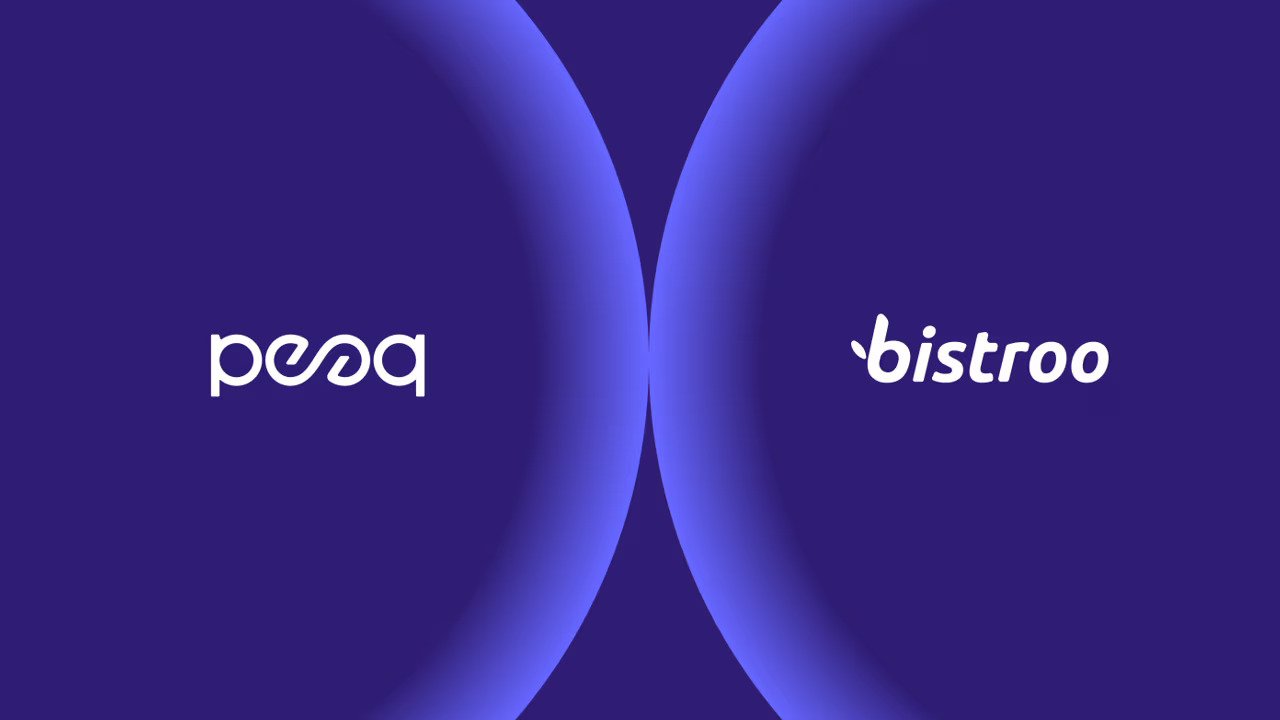In a boost for real-world commercial blockchain applications, Dutch food delivery and takeout platform Bistroo has joined the peaq ecosystem.
This partnership significantly expands the reach of the peaq ecosystem by bringing over 100,000 existing Bistroo users onboard. It presents a promising opportunity for growth and offers a compelling alternative to traditional food delivery services like Uber Eats.
Why do we need blockchain in food delivery?
The global food delivery industry is expected to grow past $1.3 trillion by 2030, with services like DoorDash and Lieferando largely retaining their popularity after the pandemic-induced spike.
But with popular delivery platforms charging fees of up to 30 per cent, restaurants are caught up in an uneasy conundrum. To offset these fees, they have to charge a premium on the food ordered via such apps, angering their customers.
Opting out of such services is not an option either, as it means losing orders and revenues.
Besides, Web2 delivery platforms often fail to provide restaurants with enough data, incentives, and ownership to help their business and get in the way of building long-lasting relationships with their clients.
Bistroo offers restaurant owners a fairer meal
Bistroo is changing the game by eliminating the Web2 intermediaries, reducing high fees, and giving the power back to restaurants and their customers.
By directly connecting users with restaurants and reducing the latter’s overhead costs compared to Web2 apps, Bistroo enables restaurants to charge lower prices.
The platform also provides restaurants with a program that eliminates transaction fees for a fixed monthly fee. Bistroo users can opt out of data-sharing or get token rewards for opting in.
Additionally, restaurants and consumers can unlock other rewards with the $BIST token, such as lower service fees. $BIST will work as the incentive to reward contributors to the network once it launches globally.
The DePIN charges restaurants a fee of only 5 per cent and is already available in the Netherlands, counting more than 100,000 users — a growth of 200 per cent compared to July 2023. It is now building on this success with an expansion into Belgium.
As Bistroo expands its operations globally, it could add hundreds of thousands of new devices to the peaq ecosystem.
From ethereum to peaq
peaq is a layer-1 blockchain for DePIN — a decentralised application that uses tokens to incentivise people to crowdsource and build connected real-world physical infrastructure — and Machine RWAs (tokenised assets in the blockchain and Web3 space).
Bistroo is expanding from Ethereum as it integrates peaq to leverage it for its DePIN connecting restaurants with people without centralised intermediation.
The integration will enable it to grow and scale faster, leveraging peaq’s Modular DePIN Functions and DePIN-friendly economics to expand its own ecosystem.
As part of the integration with peaq, Bistroo will set up the infrastructure for migrating 25 per cent of its token supply from Ethereum to peaq, including a bridging smart contract, and will also build a staking mechanism on peaq.
It will implement its token-based loyalty system on peaq and set up rewards for reviews and referrals on the home of DePIN. Bistroo will connect these functions with its user-facing app and develop a map of restaurants that users can contribute to. It will implement peaq IDs as the identity standard on its DePIN, implement rewards for restaurants, and hold an official token generation event on peaq.
“Web2 delivery apps charge outsized fees on restaurants while profiting from user data,” says Bas Roos, CEO of Bistroo.
“This equation doesn’t work for restaurants or their clients. Bistroo is offering a more sustainable alternative, and peaq’s Modular DePIN Functions and DePIN-friendly economics will boost us on this mission, enabling us to expand the app’s core functions and bolster its growth.”
“Online food orders have become a staple of our daily lives, but the Web2 approach of the industry is smothering restaurants and forcing hefty premiums on users,” says Till Wendler, co-founder of peaq.
“Bistroo lifts this burden from both restaurants and their clients, resulting in a fairer and more transparent ecosystem. We’re thrilled to see it choose peaq as the layer-1 blockchain to power its exciting platform.”



Would you like to write the first comment?
Login to post comments